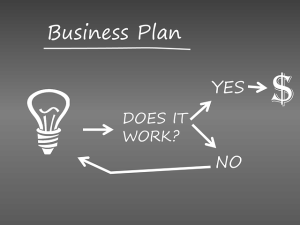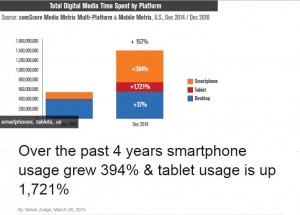
“I’m not good enough.” “No one respects my ideas.” “My boss hates me.” “They never acknowledge my hard work.” “I’ve just been lucky so far.” “That’s just not possible for me.” When it comes to the self-stories (or internal narratives that we often don’t realize we’ve created) we tell at work, they come in many shapes and sizes.
If you don’t speak up in a meeting and regret it afterward, there is likely a self-story there. If you find yourself overthinking interactions at a networking dinner or cocktail hour, there’s probably a self-story there.
When you encounter similar moments, use these occasions of second-guessing, (sometimes even cringing), as clues to uncovering deeper self-stories.
Is this making sense so far?
In a conversation with Eliza VanCort, author of the book A Woman’s Guide to Claiming Space, she highlighted the phrases women in particular use when they feel unsure. Statements like, “Do you know what I mean?” and “Does that make sense?” and even the very brief, “Right?” permeate professional conversations of all kinds and are dead giveaways for to self-doubt.
And where there is self-doubt, there is a self-story.
If you ever catch yourself saying one of these phrases, it’s likely you’ve also caught a self-story iceberg. Make a mental note in the moment and commit to revisiting it once the communication event or presentation is complete.
Feedback will determine your future
One of the most important professional trainings I ever received happened long before I put on a pair of heels and a blazer was on my high school speech team. The speech team inoculated me from the fear of public speaking. And more importantly, it set me up to receive feedback.
Every meet required delivering your speech at least three different times, to three different judges, along with an audience of competitors. After the speech, you are handed a sheet of paper where the judge writes down in detail what you did well, and extreme detail what you could improve (or more often than not, what was bad). Aside from a few rogue judges, most of the feedback was constructive in nature. But even the most judicious feedback can sting, and I remember many occasions when a feedback form shook me to my core and left me fuming, furious, and cursing the fool who said I looked like I was going to pass out I was talking so fast; except, I did talk too fast. And if I wanted to achieve my goals, namely winning, I really was going to have to slow down.
The same is true in the professional world. One of the easiest ways to catch your self-stories in the act is to pay close attention to feedback—both the feedback you receive and how you respond to it.
First, the feedback itself. If you’re told you need to be more of a team player, you may be operating from a set of stories where in childhood you were rewarded for being the best, not for being part of a collective success. Or perhaps years in an individual sales role at a cutthroat company conditioned you to go for the win no matter who you take out in the process, but now you’re working in a completely different company culture where teamwork is more highly regarded.
One executive at a large international firm stated that when it comes to improvement conversations they are almost exclusively about communication. “Being more planned, more structured, and more thoughtful in both written and oral communication.” For those looking to rise through the ranks, male or female, deliberate communication was almost always the path forward. This feedback is an opportunity to explore what self-stories might be encouraging you or at the very least giving you permission to craft messages on a whim. Maybe you’re the oldest in your family and so were never really questioned. Perhaps you were a big fish in a small pond and could get by on talent and charm alone . . . but now you’re one of many, many big talented charming fish and so excellence is going to require more.
Feedback itself can be an excellent prompt to catch the stories that are promoting certain behaviors that are now working against you.
Second, while the feedback itself is important, when it comes to using it as a tool for catching your invisible self-stories, your response to feedback is equally as valuable. For example, an executive at a Fortune 500 company was struggling with one of her direct reports. The manager was extremely good at her job, hit all of her targets, and yet every time someone offered her feedback, she started crying. “The manager will storm out of meetings and slam the door. She’ll burst into tears on a Zoom call and turn off her camera. It’s [troubling.]” The executive has had many direct conversations about this situation with the manager and has offered several solutions. “She’s driven and motivated and has her sights set on a promotion.” the executive shook her head. “But until she can handle feedback, I just don’t see that in her future.”
Constructive feedback can be tough to take. It can make us mad, sad (this is starting to sound like a Sesame Street episode), jealous, furious, vengeful (that’s better). It can make our cheeks flush, our lip quiver, our heart rate pick up and yes, lead to tears. And while I believe composure is a virtue, a lack-thereof is also an opportunity. Paying attention to your response to feedback can be a dead giveaway for stories that are holding you back. Crying might signal stories in your past about perfectionism. Anger might signal stories of when you felt slighted or overlooked. Constructive feedback is a reality of professional progress and now it can also be a tool for catching self-stories in the act.
Excerpt adapted from Choose Your Story, Change Yor Life by Kindra Hall. Copyright © 2022 by Kindra Hall. Used by permission of HarperCollins.
Kindra Hall is an author and the president and chief storytelling officer at Steller Collective and personal development expert.
Fast Company , Read Full Story
(13)







